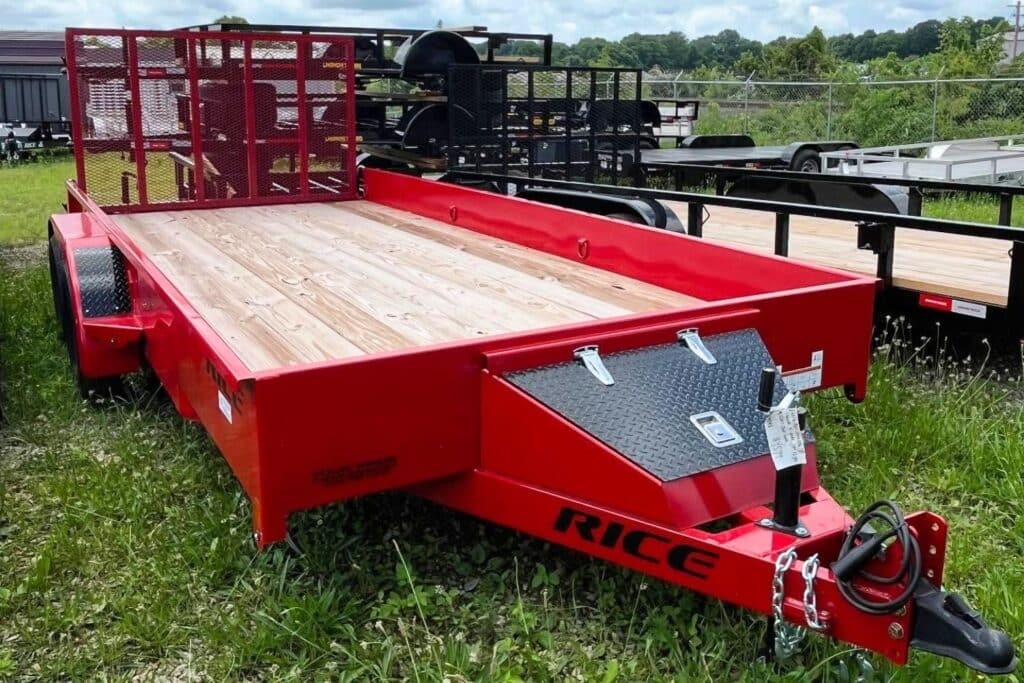
Owning a trailer is about convenience and capability, but when things go wrong, that convenience can quickly become a headache with these trailer problems. Regardless of whether you’re hauling equipment, livestock, or recreational gear, knowing how to identify the early signs of trouble is vital for safety and peace of mind on the road.
This blog serves as your comprehensive starting point for understanding all kinds of common trailer issues. Here, we’ll walk through typical signs of wear or malfunction across key trailer components. Think of this as your roadmap for spotting early warnings and deciding when it’s time for DIY maintenance or professional help.
We’ll introduce each major problem area, give you an idea of what to look for, and link to more in-depth resources as we build out the series.
| Trailer Rust Problems | Trailer Hitch Problems |
| Trailer Light Problems | Trailer Tire Problems |
| Trailer Brake Problems | Trailer Axle Problems |
| Trailer Wiring Problems | Trailer Suspension Problems |
1. Brakes That Don’t Bite: Trailer Brake Issues
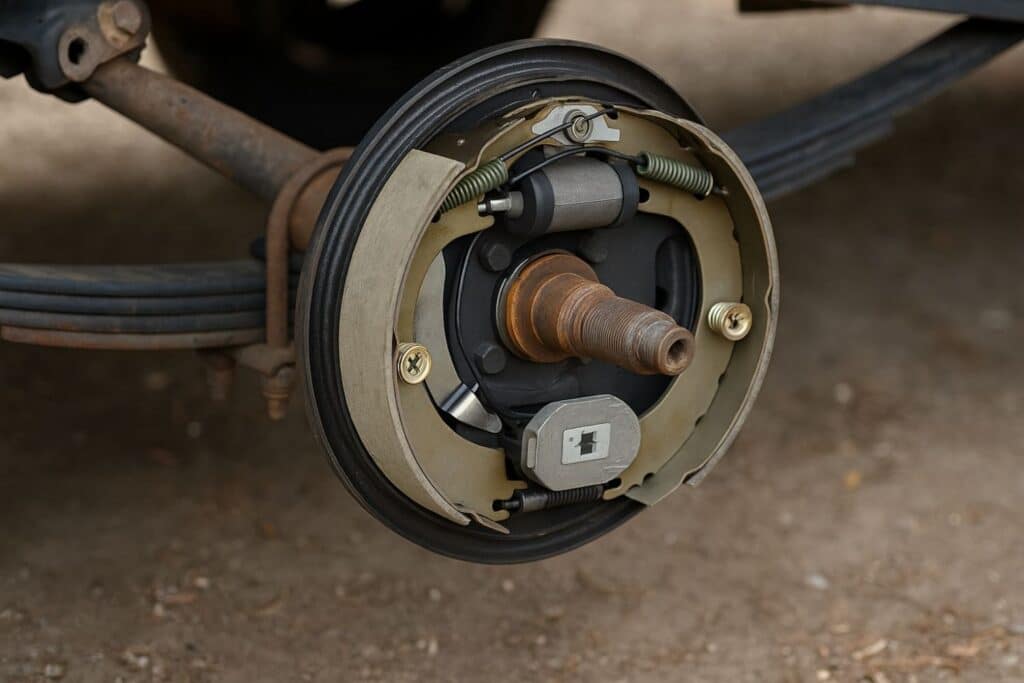
Few things are more nerve-wrecking than feeling your trailer push against your tow vehicle when you hit the brakes. If your trailer brakes aren’t functioning properly, it’s not just a hassle, it’s a hazard.
Common Signs something’s off:
- The trailer takes too long to come to a stop.
- Braking feels uneven or jerky.
- There’s a loud grinding or squealing sound when slowing down.
- Your brake controller shows error codes or inconsistencies.
Electric brakes are the most common on light- and medium-duty trailers, and these rely on both your vehicle and trailer wiring. Hydraulic surge brakes work differently and have their unique failure points, like fluid leaks or cylinder problems.
Don’t ignore even subtle braking changes. It’s usually a sign that pads are worn, wiring has failed, or an adjustment is needed.
2. When the Lights Go Dim: Trailer Lighting Problems
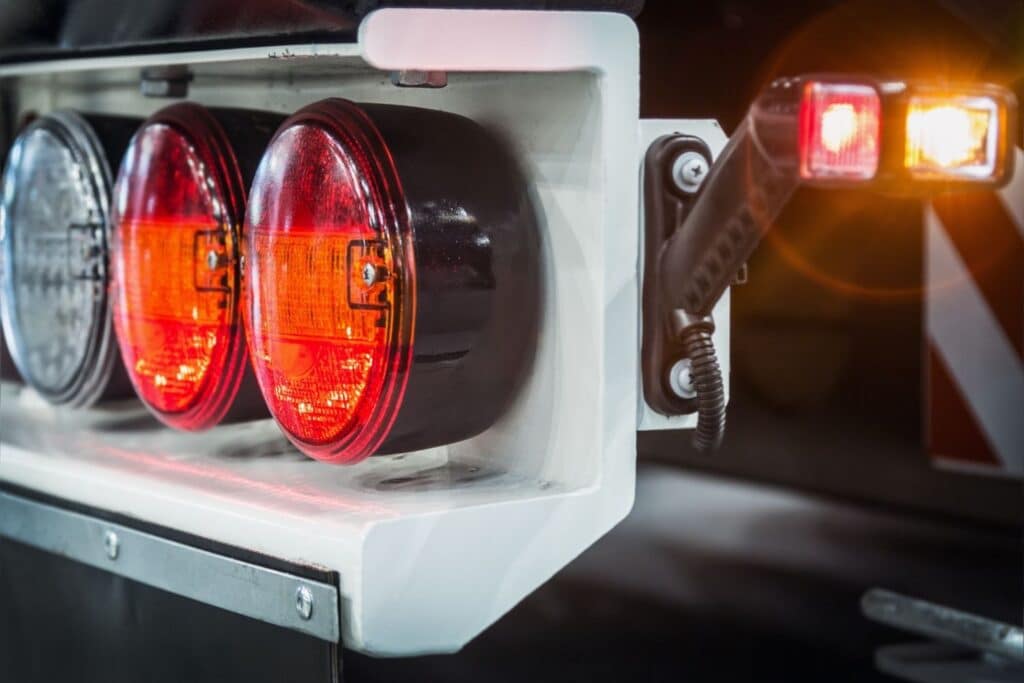
Trailer lights aren’t just legal requirements, they’re critical for safety. From turn signals to brake lights, every light plays a role in helping other drivers predict your movements. For a deeper look at common issues and how to fix them, check out our full guide on trailer light problems.
Warning signs include:
- One or more lights not working at all
- Lights flickering or cutting out when hitting bumps
- All lights are off, despite being connected
Often, the culprit is corrosion at the connector plug or frayed wires along the frame. In some cases, the problem lies in the tow vehicle, not the trailer itself. Moisture intrusion, poor grounds, or pin misalignment are also frequently to blame.
3. Common Trailer Tire Issues
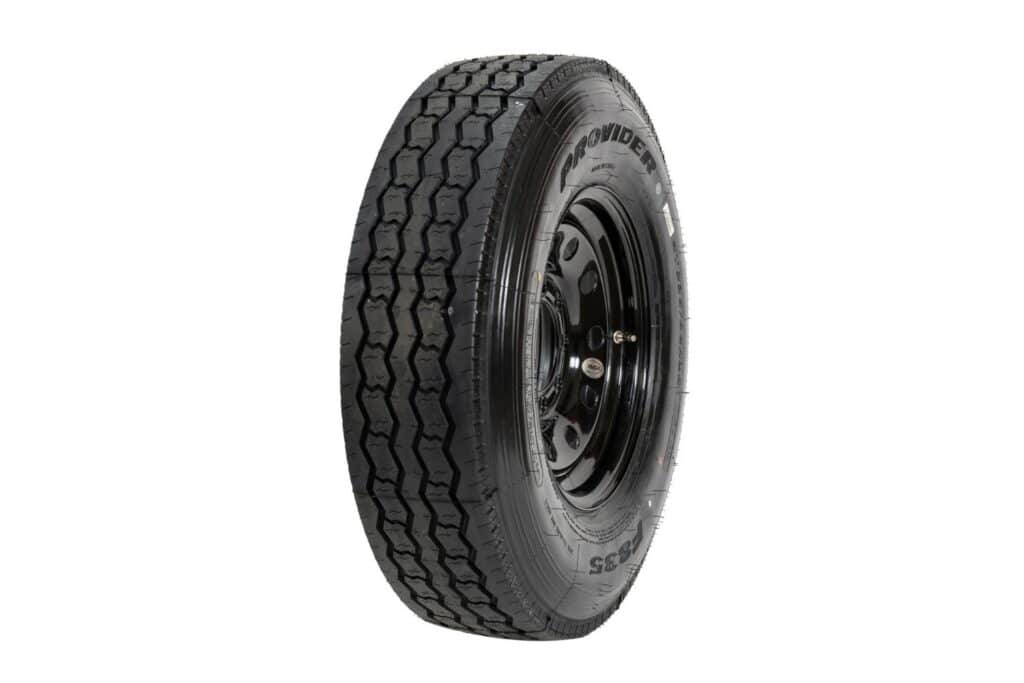
Unlike regular car tires, trailer tires endure more load and flex, especially when parked for long periods or exposed to harsh UV rays. Neglecting tire condition is a quick way to end up stranded on the side of the highway.
Watch out for:
- Uneven wear on one side
- Cracks along the sidewalls (dry rot)
- Bulging or bubbling tread
- Frequent blowouts or flats
Proper inflation is just the start. Load ratings, axle alignment, and balancing also play a role in tire health. If one tire looks “off,” it’s worth inspecting the whole setup.
4. Trailer Suspension Issues
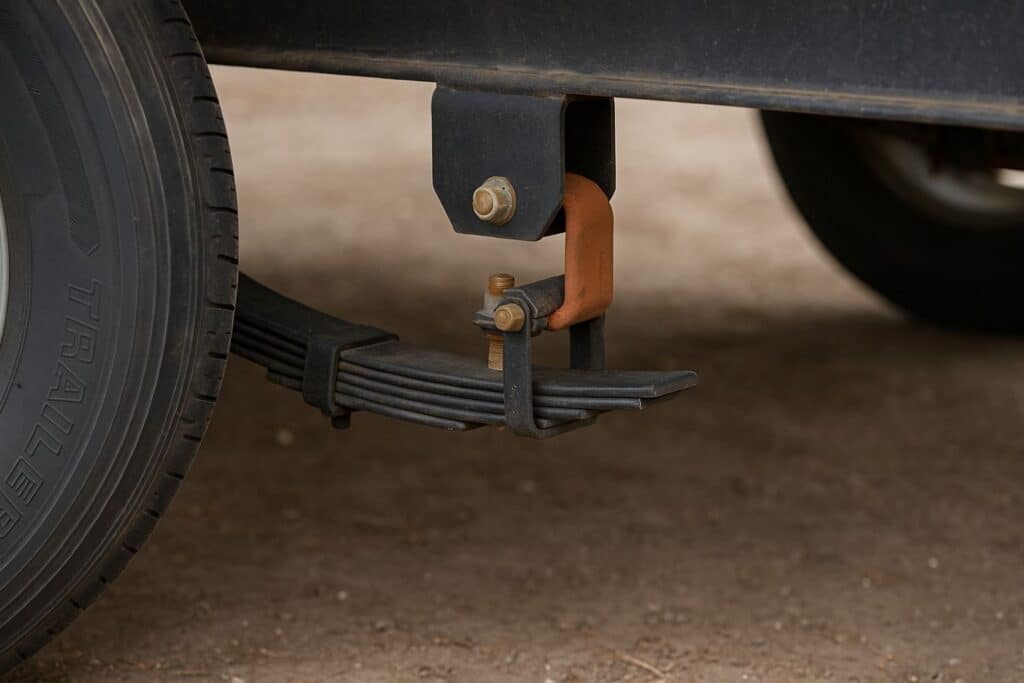
Suspension on a trailer doesn’t get much attention until it starts making noise or causing erratic handling. Most trailers use leaf springs, torsion axles, or air suspension systems, each with its own strengths and weaknesses.
Telltale symptoms include:
- Excessive bouncing or swaying
- Uneven ride height
- Visible cracks in leaf springs or broken hangers
- Strange noises during turns or over bumps
A failing suspension system affects more than comfort, it can cause premature tire wear, axle damage, and instability under load. Spotting wear in the bushings or misalignment early can save you a lot of money later on.
5. Wiring Gone Wrong: Trailer Electrical System Issues
From lights to brakes to interior features, a trailer’s electrical system ties it all together. When something shorts out, figuring out what went wrong can feel like untangling a ball of holiday lights.
Signs your wiring needs attention:
- Lights that work intermittently
- Blown fuses in the tow vehicle
- Brake controller errors or disconnect messages
- Burnt smells near the plug or wiring harness
Most electrical problems stem from exposed wiring rubbing against metal parts, corrosion, or poorly made splices. Using marine-grade connectors, dielectric grease, and proper routing can go a long way in avoiding future failures.
6. Trailer Rust and Corrosion
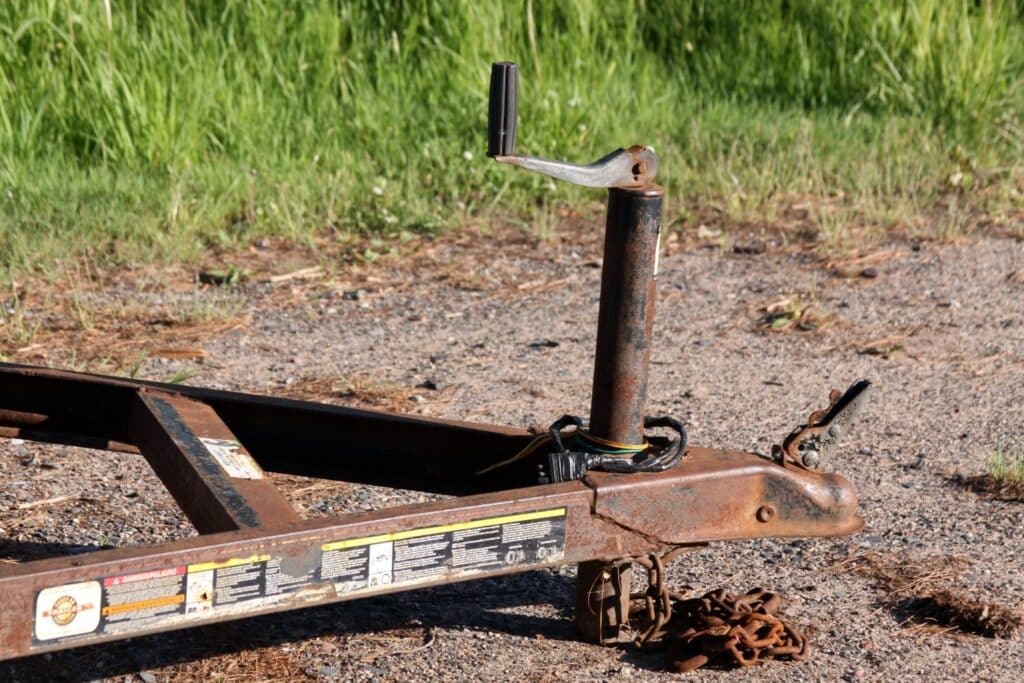
Metal and moisture don’t mix, especially if you live in a region with snow, salt, or high humidity. Rust can compromise your trailer’s frame, fasteners, axles, and even wiring connections.
What to keep an eye out for:
- Flaking paint or surface rust on the frame
- Pitted metal near joints and welds
- Rust around hinges, bolts, and connectors
- Rusty brake lines or wheel hubs
Ignoring early signs of rust can lead to structural damage and even frame failure. Regular washing, especially after salty road exposure, and applying a rust-inhibiting undercoat can extend your trailer’s lifespan significantly.
7. Under Pressure: Trailer Axle Problems
Axles carry your load, keep the wheels in place, and absorb impact from the road. Damage here can cascade into bigger issues, like tire wear, poor tracking, and unsafe towing.
Clues something’s off:
- Excessive camber or toe (tilted wheels)
- One side riding lower than the other
- Clicking, squeaking, or grinding from the axle area
- Bent or visibly damaged axle tubes
You may not always see the trailer axle problem, but you’ll feel it, especially at higher speeds or with heavier loads. Regular greasing, inspections, and weight distribution can help extend axle life.
8. Trailer Hitch Issues
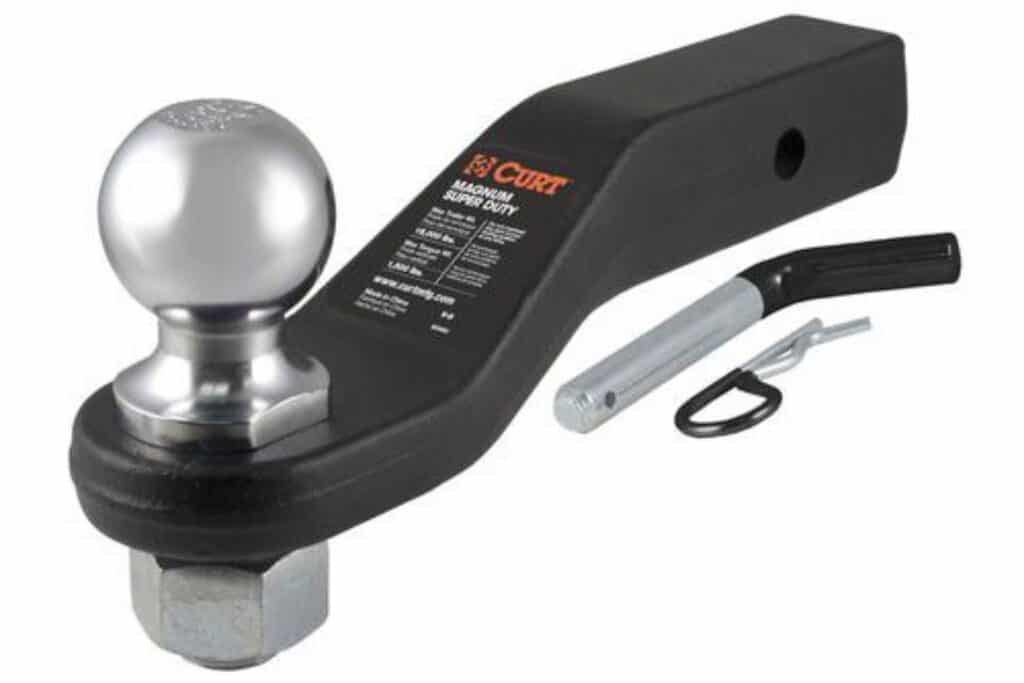
If your trailer’s hitch isn’t secure, nothing else really matters. A compromised connection between your trailer and tow vehicle is dangerous and can lead to serious accidents.
Common warning signs:
- Excessive play or rattling at the hitch
- Coupler latch not locking or popping open
- Uneven wear on the ball or coupler
- Tongue weight issues causing squat or sway
Ensuring compatibility between your hitch type and trailer tongue is key, especially for gooseneck, fifth wheel, and weight-distributing setups. Greasing the ball, checking for cracks, and replacing worn parts can help avoid disaster.
Stay Ahead of Trailer Problems
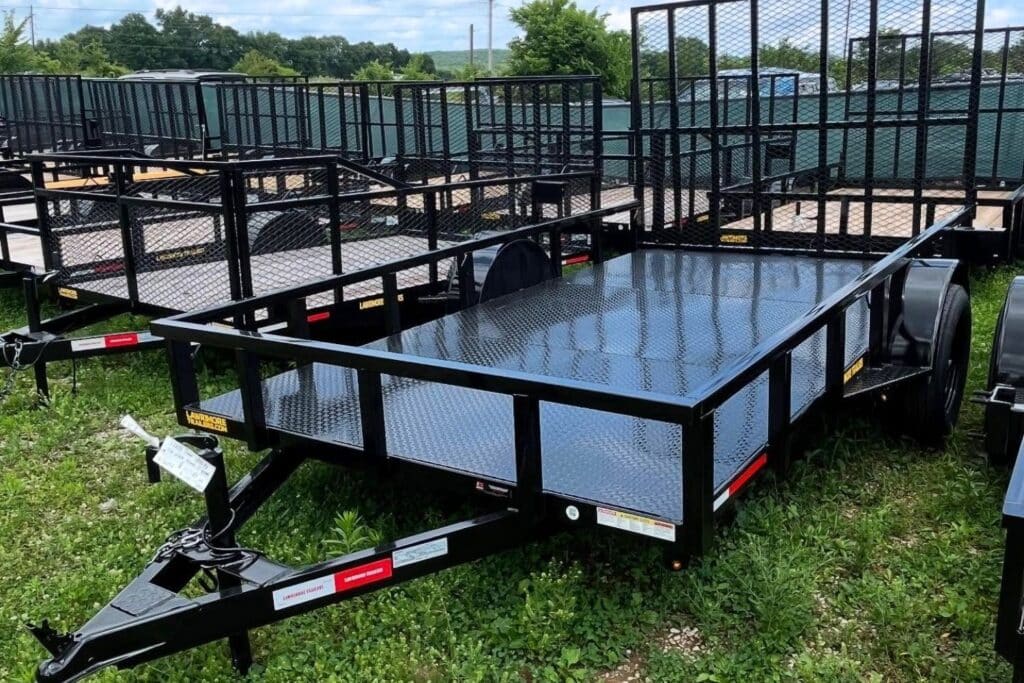
Every trailer, no matter the type or size, has dozens of moving parts working together. When one starts to fail, it often sets off a chain reaction. That’s why early detection is essential and why this guide exists.
Here’s what you can do now:
- Start with a basic visual inspection every time you hook up.
- Listen for unfamiliar sounds and trust your instincts.
- Keep a maintenance checklist and update it regularly.
Over time, we’ll be expanding this blog into a full series with individual posts dedicated to each system, so you can get deeper troubleshooting guides, how-tos, and repair tips when needed.
